Top 15 Health Benefits of Walnuts
Walnuts are frequently used in baked goods such as cookies, muffins, brownies, and baklava. However, walnuts are also great as a snack or as a garnish for ... read more...hummus, healthy grains, cooked vegetables, and salads. Walnuts offer health advantages that are supported by research and crucial nutrients in addition to their satisfying crunch. Here are a few of the best advantages of this beneficial tree nut.
-
18 grams of healthy fat, 4 grams of protein, 2 grams of fiber, nearly half the daily recommended amount of manganese, and trace amounts of magnesium, iron, calcium, and B vitamins are all present in one ounce, which is equivalent to 14 walnut halves or about a quarter cup. A mineral called manganese is essential for the development of collagen and the repair of wounds. It also promotes strong bones. Additionally, walnuts are a rich source of antioxidants with anti-inflammatory properties that help prevent the development and progression of illnesses including cancer, heart disease, and neurological disorders.
Walnuts are 65 percent fat by weight and 15 percent protein. They are richer than most nuts in polyunsaturated fats (often considered the “good” fats) and have a relatively high amount of omega-3 fatty acid called alpha-linolenic acid (ALA). Walnuts are also particularly rich in an omega-6 fatty acid called linoleic acid.
Walnuts contain other essential nutrients such as beta-carotene, lutein, and zeaxanthin, as well as phytosterols. They are a good source of dietary fiber and antioxidants (ellagic acid, catechin, melatonin, and phytic acid). All of these beneficial nutrients contribute to walnuts being thought of by many as ‘power food’.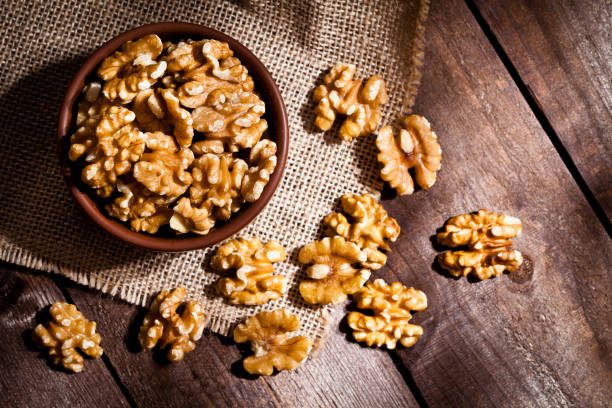
Rich in nutrients 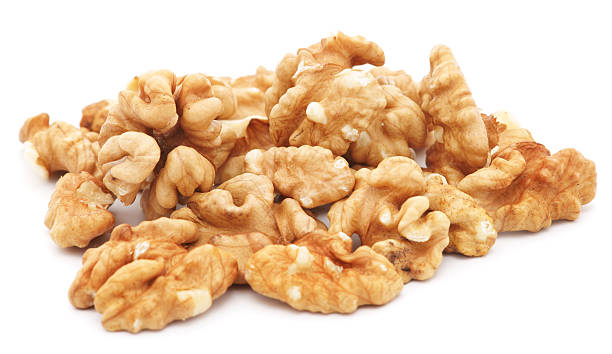
Rich in nutrients -
Specialized molecules known as antioxidants are in charge of guarding against oxidation in your body. In more detail, antioxidants are able to stop certain molecules from harming the nutrients that your body requires for energy. You're undoubtedly already familiar with antioxidants like vitamin C, vitamin E, phenols, and flavonoids.
Your body's wellness benefits from antioxidants. These substances are only produced in little quantities by your body. As a result, by eating foods that contain antioxidants, you may still provide your body with the benefits of having them. As an illustration, walnuts are a plant-based food that is high in antioxidants. In actuality, walnuts are the source of more antioxidants than any other nut that is cultivated organically.
More than any other popular nut, walnuts have the highest antioxidant activity. Vitamin E, melatonin, and plant chemicals called polyphenols—which are abundant in the papery skin of walnuts—are the sources of this action. Early, small research on healthy people found that having dinner high in walnuts inhibited the oxidation of "bad" LDL cholesterol after eating, but eating a meal high in refined fats did not. This is advantageous since oxidized LDL can accumulate in your arteries and lead to atherosclerosis.
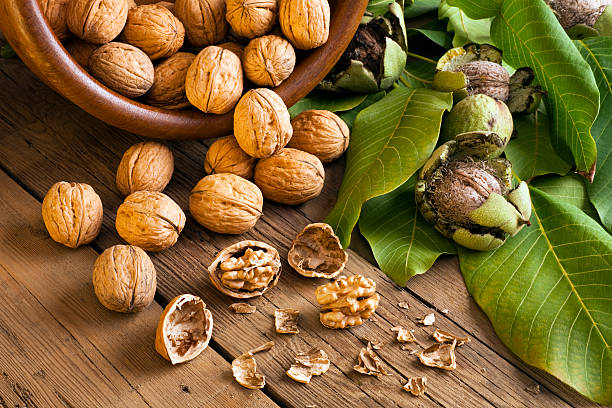
Contain Antioxidants 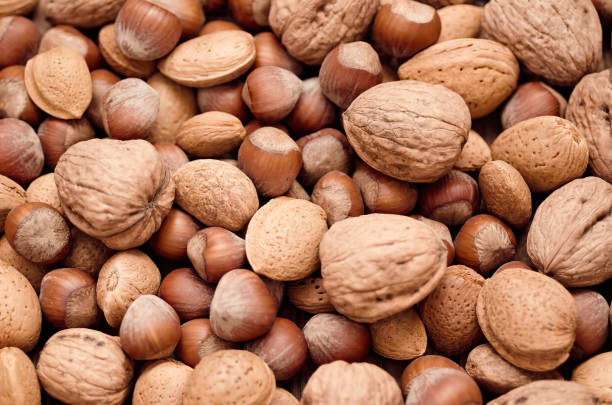
Contain Antioxidants -
Walnuts are abundant in omega-3 fatty acids, which have been demonstrated to aid promote heart health, according to the National Institutes of Health (NIH). L-arginine, an amino acid, and monounsaturated fatty acids, such as oleic acid, make up 72% of the fat in fresh, raw walnuts. Alpha-linolenic acid (ALA), arachidonic acid, and other important fatty acids (EFAs) are also present in it. By promoting a healthy lipid supply, including these nuts in any diet will help avoid coronary heart problems.
According to research in the journal Metabolism, participants who consumed walnuts had considerably lower levels of LDL (the bad kind of cholesterol) and higher levels of HDL (the good kind). Walnut consumption also decreased ApoB levels, a marker used to assess the risk for cardiovascular disorders, according to German researchers at the University of Munich Medical Center.

Improve heart health 
Improve heart health -
Due to their great amount of omega-3 fatty acids, walnuts have the power to elevate your mood. The fact that omega-3 fatty acids function as natural antidepressants mean they have the power to impact your mood. Eicosapentaenoic acid, an omega-3 fatty acid found in fish, is more particularly able to function as a natural antidepressant. The majority of the healthy fats in your nervous system allow it to communicate ideas, feelings, and orders to your body.
You are providing your neural systems with the energy they require to correctly convey and organize your feelings, emotions, and ideas by maintaining the level of fatty acids that your diet requires. Omega-3 fatty acids are abundant in walnuts, which is why they can elevate your mood. You can eat walnuts as often as you desire during the day. However, it is suggested that you take them with a meal at least once a day. The majority of individuals decide to have a grain snack with walnuts for breakfast to boost their mood and provide them a decent source of energy to last them throughout the day.

Improve Your Mood 
Improve Your Mood -
Your body experiences inflammation as a result of an injury or another sort of harm that alters the state of your body. Inflammation more explicitly refers to an overproduction of white blood cells in the part of your body that has been injured. If not treated appropriately, this can be uncomfortable and can cause additional infections, illnesses, or diseases.
You may eat specific foods that can reduce inflammation in order to treat it in your body. For instance, walnuts have anti-inflammatory qualities that reduce the amount of inflammation brought on by physical harm to your body. Walnuts include phytonutrients, phytochemicals, and polyphenolic substances, all of which have the potential to help reduce inflammation.
Oxidative stress may produce inflammation, which is the basis of many illnesses such as cancer, type 2 diabetes, Alzheimer's disease, and heart disease. Walnuts' polyphenols can aid in the battle against inflammation and oxidative damage. Ellagitannins, a subclass of polyphenols, may be particularly important. Ellagitannins are transformed by helpful bacteria in your stomach into substances known as urolithins, which have been shown to inhibit inflammation. Walnuts' arginine amino acid, magnesium, and ALA omega-3 fat may all help to reduce inflammation.

Anti-inflammatory 
Anti-inflammatory -
According to studies, having a healthy gut and general health is more likely if your gut is home to a variety of bacteria and other microorganisms that support good health (your gut microbiota). Your risk of obesity, heart disease, and cancer can increase due to an unbalanced microbiota, which can also lead to inflammation and illness in other parts of the body.
Your microbiota's composition can be dramatically influenced by what you consume. One method to promote the health of your microbiota and intestines is by eating walnuts. 194 healthy people who consumed 1.5 ounces (43 grams) of walnuts daily for eight weeks had more good bacteria than those who did not consume walnuts at that time. This includes a rise in the bacteria that create butyrate, a lipid that nourishes and improves the health of your gut.

Promote healthy gut 
Promote healthy gut -
Walnut consumption may lower your chance of developing several cancers, including breast, prostate, and colorectal cancer, according to test-tube, animal, and human observational studies. Walnuts are high in polyphenol ellagitannins, as was already mentioned. These can be transformed into substances known as urolithins by certain gut microorganisms. Eating walnuts may help prevent colorectal cancer in part because urolithins have anti-inflammatory qualities in your stomach. The anti-inflammatory properties of urolithins may potentially aid in preventing other malignancies.
Additionally, because urolithins resemble hormones, they might block hormone receptors in your body. Your risk of hormone-related malignancies, notably breast and prostate cancer, may be lowered as a result. In order to validate the effects of consuming walnuts on lowering the incidence of this and other cancers and to define all the processes by which they may aid, further human research is required.
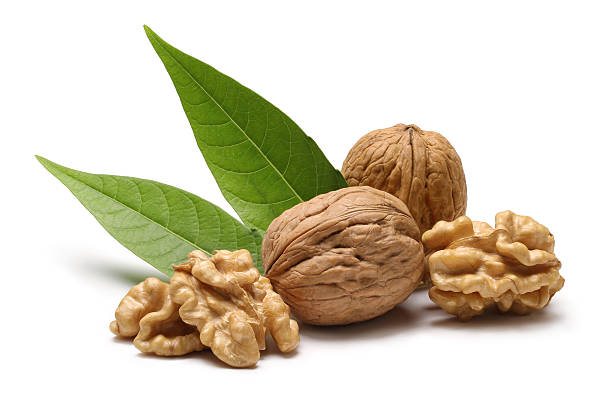
Reduce Risk of Some Cancers 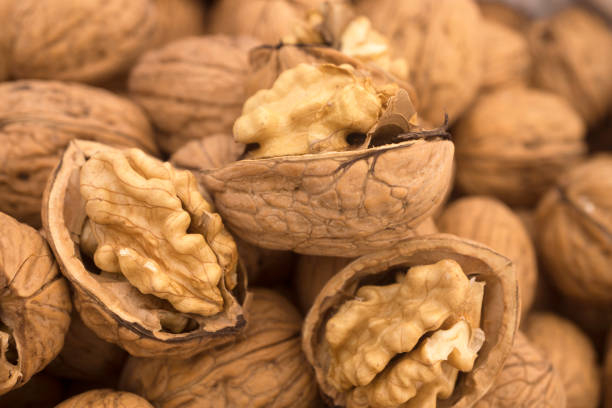
Reduce Risk of Some Cancers -
Despite the fact that walnuts are high in calories, studies show that the amount of energy that is really absorbed from them is 21 percent lower than would be predicted given their nutritional makeup. Additionally, eating walnuts may even aid with appetite management. In a rigorously controlled experiment involving 10 obese participants, consuming a smoothie containing around 1.75 ounces (48 grams) of walnuts once a day for five days reduced appetite and hunger compared to drinking a placebo beverage with the same calories and nutrients.
Brain scans also revealed that after five days of ingesting the walnut smoothies, the individuals' activity in a section of the brain that aids in resisting extremely alluring food signals, such as cake and French fries, had risen. Despite the need for bigger and longer-term research, this offers some preliminary understanding of how walnuts could aid in hunger and weight control.
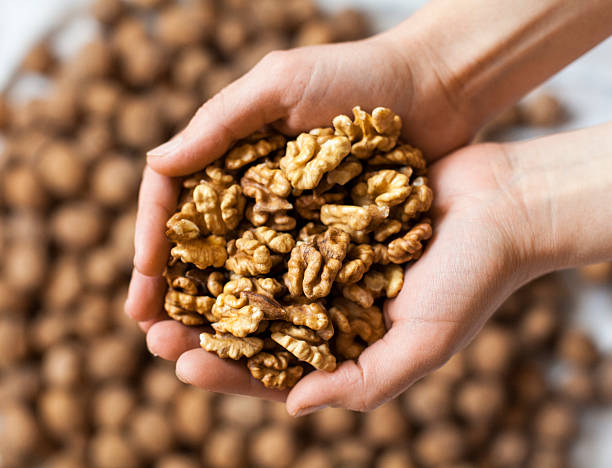
Supports Weight Control 
Supports Weight Control -
A significant risk factor for heart disease and stroke is high blood pressure. According to several research, eating walnuts may help decrease blood pressure, both in healthy persons and in people with high blood pressure who are under stress. This impact was not shown in other investigations. In addition to other diets, the four-year PREDIMED research investigated a Mediterranean diet supplemented with 1 ounce (28 grams) of mixed nuts daily, of which half were walnuts, in about 7,500 individuals at high risk of heart disease.
Diastolic blood pressure decreased by 0.65 mmHg more in research participants following the nut-enriched Mediterranean diet (bottom number) than in participants following a similar heart-healthy control diet without nuts. This implies that adding nuts to a heart-healthy diet may somewhat enhance its effects on lowering blood pressure. This is crucial because it is believed that even minor variations in blood pressure can have a significant effect on your chance of dying from heart disease.

Help Lower Blood Pressure 
Help Lower Blood Pressure -
Being physically healthy becomes increasingly important as your age if you want to keep your freedom and mobility. Healthy dietary practices are one factor that may help you preserve your physical ability. More than 50,000 older women participated in observational research spanning 18 years, and the results showed that those with the cleanest diets had a 13 percent lower chance of physical disability. Among the items that contributed most strongly to a healthy diet were walnuts. The vital vitamins, minerals, fiber, lipids, and plant components included in walnuts may maintain healthy physical performance as you age even if they are heavy in calories.
In persons over 60, Alzheimer's disease is an illness that is quite prevalent. It is a condition when your memory is substantially compromised. Your mental state and mental functions may be significantly impacted by Alzheimer's disease and other age-related illnesses. Due to their capacity to enhance brain function, walnuts can lower the chance of contracting age-related disorders. Due to the fact that memory perception occurs in the brain, improving brain health can help postpone or even prevent the development of age-related disorders.

Reduce the Signs of Aging 
Reduce the Signs of Aging -
Diabetes is a condition when your pancreas' ability to produce insulin is compromised. The pancreas produces insulin, a particular hormone that controls and maintains the level of sugar in your body. Diabetes patients either create insufficient insulin or produce it in a troublesome way. Because they enhance both your diet and your health, walnuts have the power to lower the danger that people may acquire type 2 diabetes. More specifically, walnuts have been shown to promote cardio-metabolic health, which is linked to type 2 diabetes.
People with type 2 diabetes typically have high blood sugar levels and must control how much sugar they consume in their diet. Because they enhance the performance of your blood arteries and lower your cholesterol levels, walnuts can assist you in managing your type 2 diabetes. This is advantageous since individuals with type 2 diabetes frequently have high cholesterol levels in addition to blood vessel dysfunction. Walnut eating on a regular basis would assist diabetics to prevent weight gain, which is a big worry.
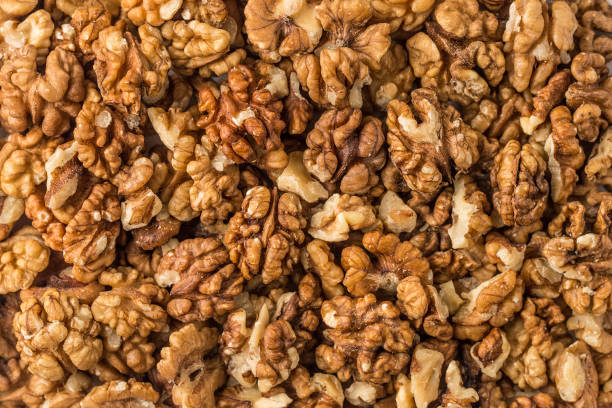
Reduce the Risk for Diabetes 
Reduce the Risk for Diabetes -
A 2020 study that was written in The American Journal of Clinical Nutrition suggests that eating walnuts may aid older persons who are at risk of cognitive impairment and prevent such decline. Over 600 elderly people were randomly allocated to one diet that contained 15% of their calories from walnuts or another diet that did not. The cognitive performance of healthy volunteers was unaffected by the walnuts, but brain MRIs revealed that higher-risk individuals, such as heavier smokers and those with poorer baseline neuropsychological test scores, were more affected by the nuts.
Walnuts have the power to enhance a number of mental processes, including your brain's capacity for speedy processing, memory, and mental flexibility. Numerous studies have shown that eating walnuts regularly significantly enhances these particular brain processes.
More precisely, walnuts have a high concentration of omega-3 fatty acids, which can enhance adult cognitive function and guard against future cognitive deterioration. Omega-3 fatty acids are recommended for regular consumption due to their beneficial effects on the brain. You can get the daily necessary quantity of omega-3 fatty acids by eating a handful of walnuts every day.

Improve your Brain Function 
Improve your Brain Function -
Due to the modest levels of melatonin they contain, walnuts can enhance the quality of your sleep. The hormone melatonin is in charge of producing the wakefulness-related pigment melanin. Melatonin particularly regulates your daily cycles of wakefulness and sleep. Melatonin, which is included in walnuts, may help you sleep better. Melatonin levels in walnuts range from 2.5 grams to 4.5 nanograms.
Melatonin, a hormone that aids in inducing and regulating sleep, is produced by this nut. These nuts contain melatonin in a bio-available form. Laboratory rats given walnuts had higher blood melatonin concentrations than those fed a controlled diet without the nuts, according to a study published in the journal Nutrition in 2005. So, to promote a sound, peaceful night's sleep, it's ideal to include walnuts in your supper dishes.

Regulate Sleep 
Regulate Sleep -
Specialized bone cells and calcium tissue combine to form your bones. They also have some bone marrow in them. Because they boost the amount of calcium that is deposited and absorbed in our bodies, walnuts are good for the health of your bones. Walnuts lessen the quantity of calcium excreted through urination.
Additionally, walnuts contain boron, which is good for supporting bone health since it speeds up the metabolism of your bones. Walnuts, as was previously noted, also contain magnesium. Because it encourages the synthesis of connective tissues, which are found in both bone tissue and cartilage, magnesium is beneficial for promoting bone health. Additionally, magnesium guards against osteoporosis, which weakens bones.

Beneficial to Bone Health 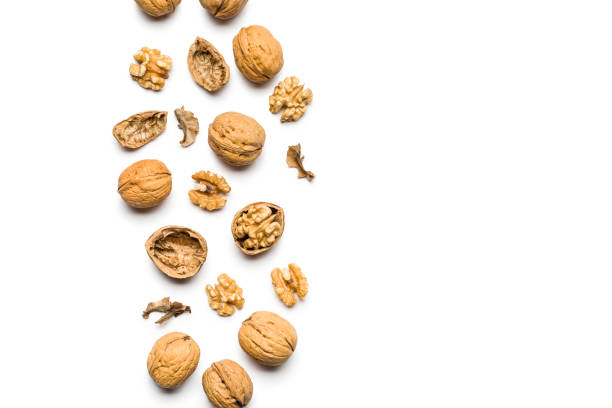
Beneficial to Bone Health -
For fetal development, roasted, unsalted walnuts are a vital source of vitamin B-complex. According to research that appeared in the European Journal of Epidemiology, children's neurodevelopment improved when mothers ate a diet high in nuts (particularly walnuts) during the first trimester of pregnancy. As was already known, walnuts are rich in fatty acids. They may thus be advantageous for expectant mothers because many medical professionals advise eating a diet high in fatty acids.
During pregnancy, fatty acids not only benefit the mother's health but also work to protect the unborn child from having specific food allergies. Additionally, walnuts have the power to enhance neurological and brain development in unborn children. As the child gets older, this may assist him or her in further developing healthy brain function. Finally, walnuts can raise the likelihood that the kid will develop normally and healthily in general.
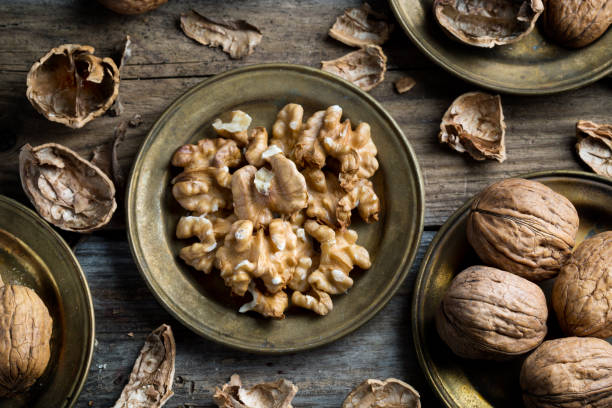
Beneficial for Pregnant Women 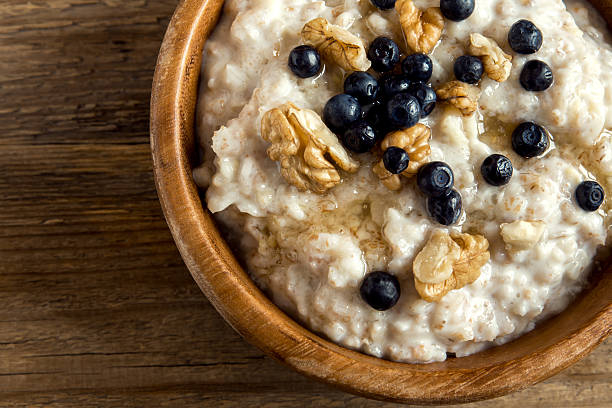
Beneficial for Pregnant Women




































